|
Co-Chairs Angie and Nick will be presenting a webinar on our SE3 study, hosted by ATC.
The following is the announcement for this webinar: "In early 2016, the SE3 committee administered a nationwide survey of employee engagement and gender equity in the structural engineering profession, for which they received over 2,100 completed responses. The survey investigated a variety of measures of engagement (satisfaction) and equity regarding career advancement, compensation, and work-life balance. This webinar will share the most significant findings of the 2016 study, including why 56% of respondents have considered leaving the profession, the prevalence of the gender pay gap, and the importance of mentorship. The Structural Engineering Engagement and Equity (SE3) Committee is a committee of the Structural Engineers Association of Northern California (SEAONC) whose mission is to study engagement and equity in the structural engineering profession in order to provide meaningful input on improving both of these metrics within the industry."
1 Comment
More Photos from the EventSE3 Survey Comments Reveal Wide Range of Experiences Within Structural Engineering Profession12/4/2016 We received numerous comments at the end of our 2016 survey. They reveal a wide range of experiences in the Structural Engineering profession. Here is a small sample of the comments we received.
"I am enormously happy with my career as a structural engineer. I had a rare, varied, and highly rewarding career in design, construction and forensic work." Male, mid-70s "People who stay in the field (both men and women) do so for the love of it - as an avocation, not to fulfill ego or greed. This makes them, on the whole, more respectful and interested in their employees as people." Female, early-40s "Employers would be wise to learn that engineers are not a commodity. They are the source of income and profits, to be well nourished, consistent with their talent levels." Male, late-60s "As a mother with a professional engineering career, my experiences are better described as 'confused' and 'conflicted', rather than 'pleased' or 'dissatisfied.' Female, late-30s 'I think our industry is lagging in... compensation as scaled to education and training requirements compared to other professions." Male, mid-30s "I was explicitly told that a promotion was delayed due to the fact that management didn't know if I was 'going to be a mother or an engineer'." Female, mid-30s "Wish I would have spent more time with family. Felt I could not in order to succeed at career." Male, early-40s "I felt as a female I had a very strong support network throughout my years in college. Once I started working, however, there was little to no support for females, and work-life balance in general." Female, early-30s "In general, I believe structural engineers offer more value than they are compensated for." Male, mid-20s What are your thoughts on these findings? How can we take what we've learned and move forward to address these issues?
(Note: if you wish to stay anonymous with your comments, please just note "Anonymous" in the name section of the comment response) What other aspects of employee engagement/retention do you feel have not yet been addressed? Do you have any suggestions for future work by the SE3 Committee?
Based on your personal and professional experiences, what are your recommendations for best practices for firms to adopt to help improve engagement and retention in the structural engineering industry?
Do you have any experiences you would like to share with the community?PRELIMINARY KEY FINDINGSHere are the preliminary key findings of the 2016 SE3 survey, as presented by the SE3 committee at the SEAONC meeting on Tuesday, September 13th, 2016.
The results are based on a survey that was distributed nationally to 2162 currently and formerly practicing structural engineers. OVERALL SATISFACTION Structural Engineers are generally satisfied with their choice of career. However, there is room for improvement, especially with pay/compensation, work/life balance and career advancement. Men and women agree on their top 3 reasons for considering leaving the industry, but ranking varies by gender. Men tend to care more about pay/compensation, while women tend to care more about work-life balance. CAREER ADVANCEMENT There is a disconnect between how managers and staff perceive their work environments, specifically with respect to expectations and opportunities for advancement. There is value in mentorship. Respondents with mentors are 18% less likely to consider leaving than respondents who do not have mentors. PAY/COMPENSATION Burnout is real – respondents who are overworked are much more likely to leave the industry. For each additional hour worked each week, a respondent was 4% more likely to consider leaving. There is a gender pay gap in our industry. WORK-LIFE BALANCE / CHILDREN There is a negative stigma against employees with children. Employees with children advance at a slower rate than employees without children. However, they are also more satisfied with their careers overall. At every position level surveyed, women structural engineers are less likely than men to have children. Over time, the % childcaring has decreased for women, and stayed the same for men (as evidenced by the age range of respondents surveyed). As men and women move towards more equal sharing of childcare, the retention problem is less and less applicable to women only. |
The SEAONC SE3 Committee2016-2017 Archives
April 2023
Categories |

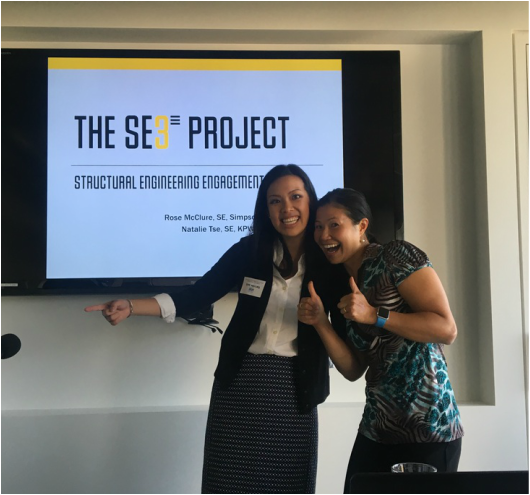
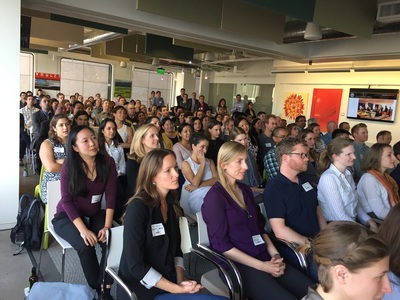
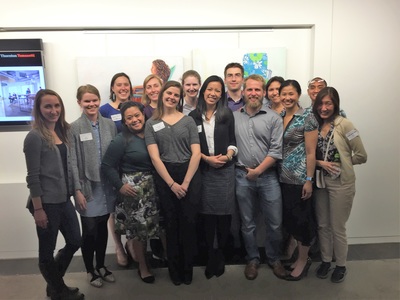
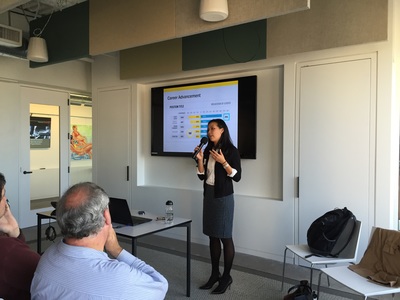
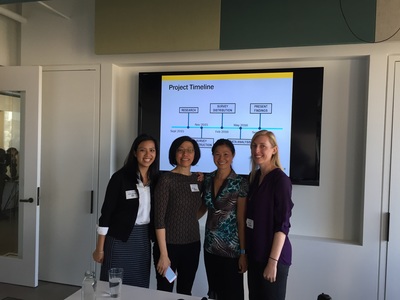

 RSS Feed
RSS Feed